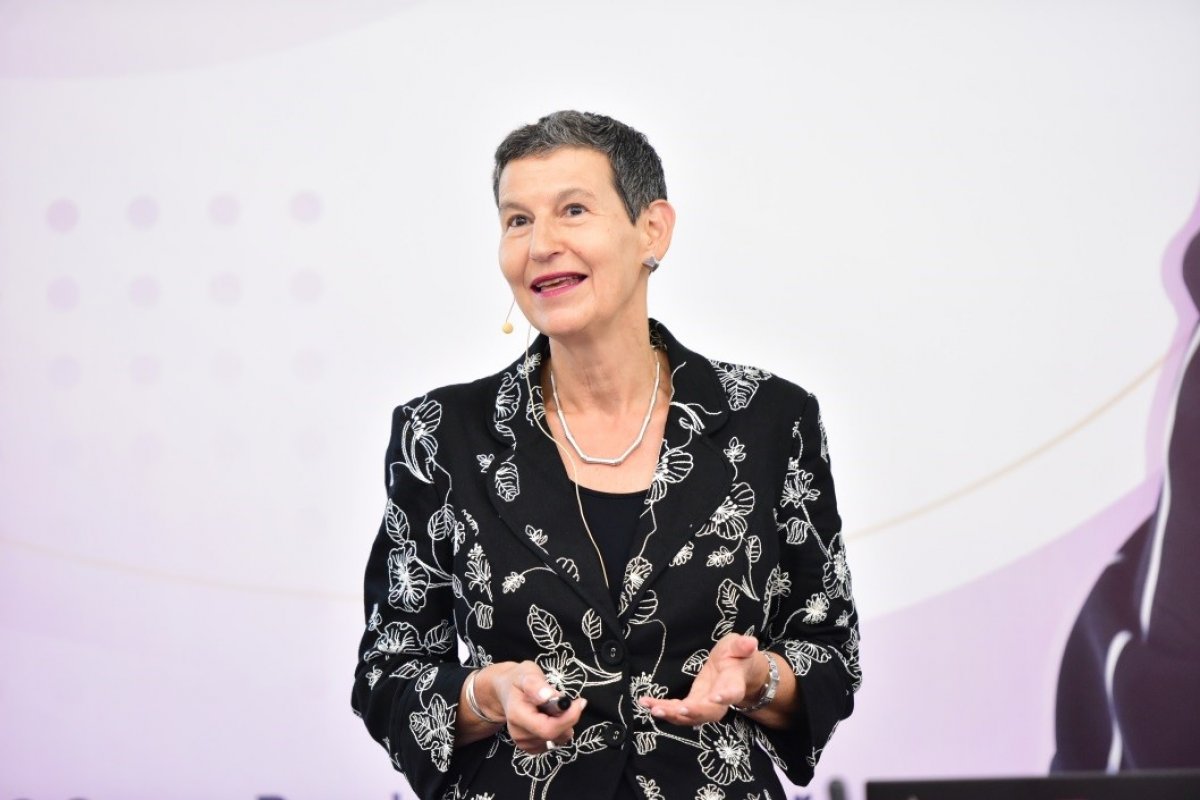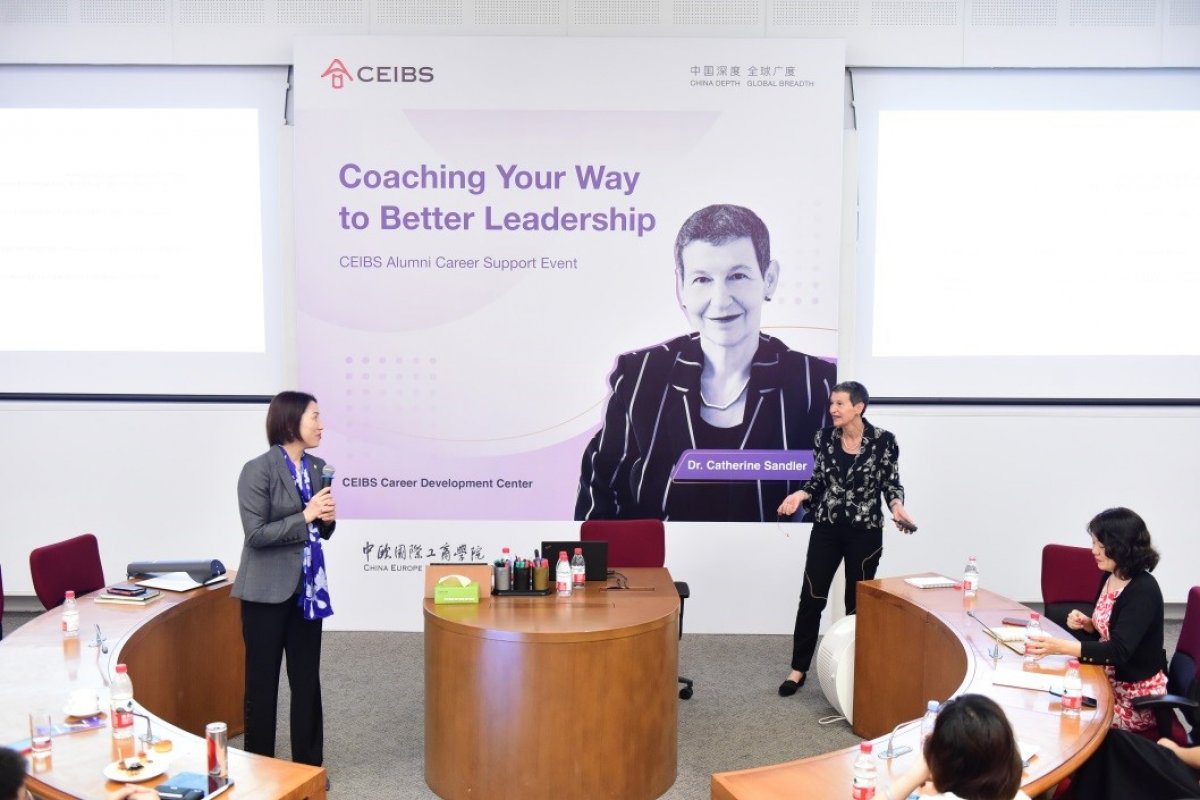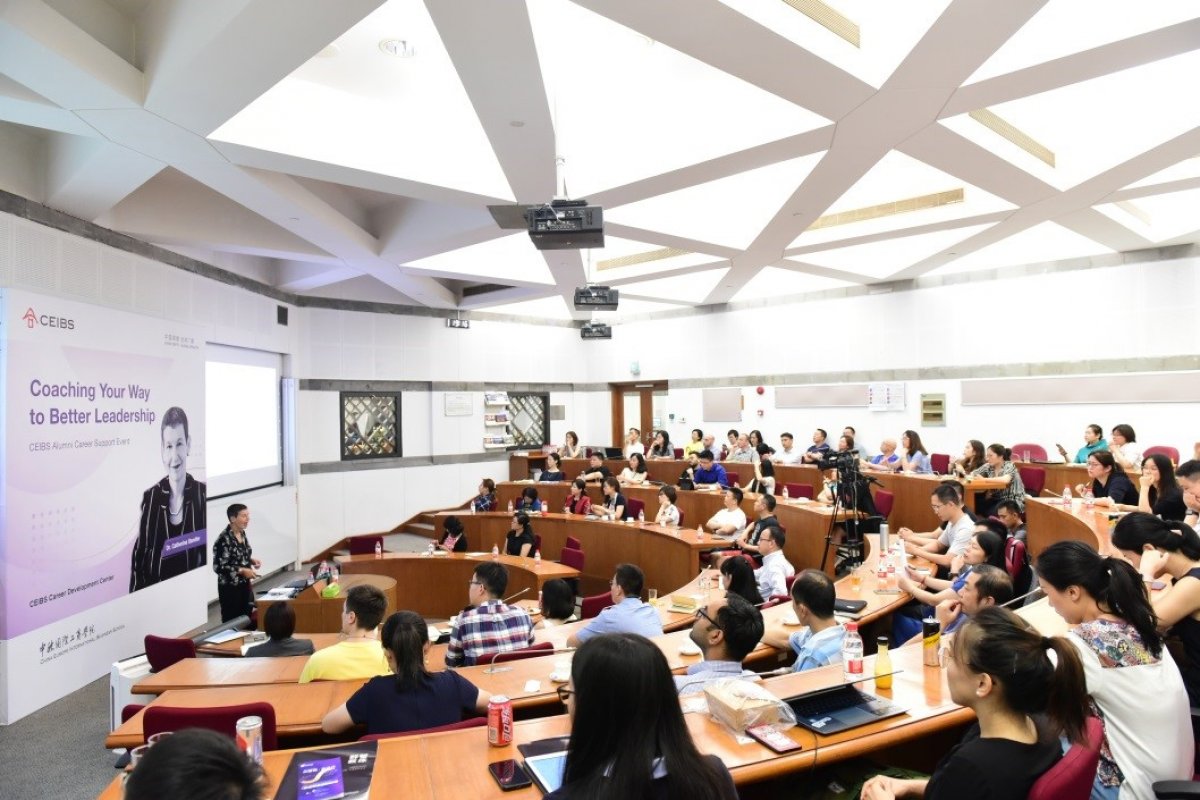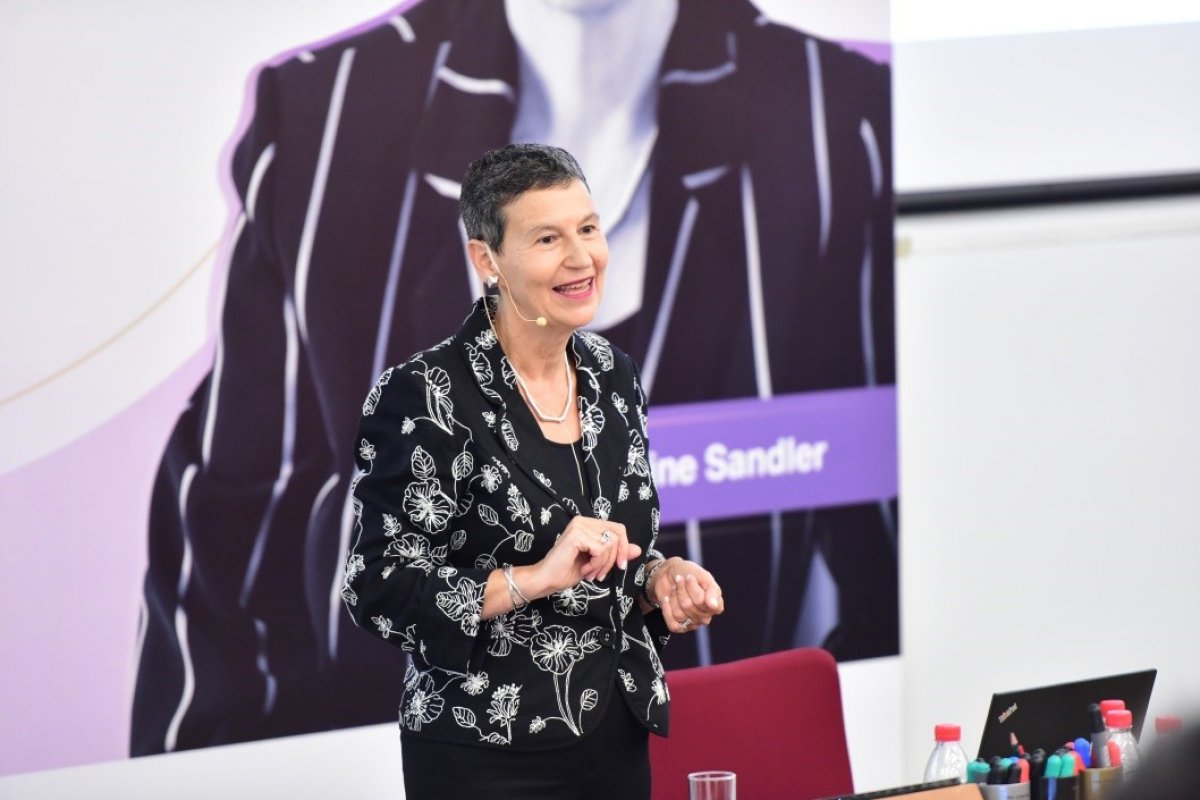Under Pressure, Are you a Tiger, a Dolphin or an Owl?
September 14, 2019. Shanghai – Imagine you have an over-aggressive boss with strong personalities. How would you function? Alternatively, imagine you are a business unit leader facing an overwhelmingly tough task, but your team is making little progress. Would you stick to the task and push the team harder or adjust the goal?
Both of these scenarios and issues are common in the workplace. Today, Catherine Sandler, a seasoned executive coach with a PhD in Psychology from Oxford University, visited CEIBS to share her insights on leadership with different emotional profiles and how coaching can help improve leadership. Her lecture, entitled Coaching Leaders under Pressure, was well received by nearly 100 CEIBS MBA and GEMBA alumni as well as students and alumni from CEIBS other programmes.
In Sandler's view, within a complex organisational behaviour ecosystem, people at first need to analyse themselves. For example, can you identify your emotion mode? Do you tend to be task-focused or do you prefer dealing with people? If you are concentrating on a task, do you always maintain a high level of emotion, or do you easily slip into a low mood?
Drawing on both psychodynamic theory as well as a large number of cases from her 25 years of executive coaching experience, Sandler has developed what she calls the “Emotional Profiles Triangle”, which uses three animals – a tiger, a dolphin and an owl – as metaphors for different emotional profiles.
“Tigers represent task-focused, high-emotional leadership style. These leaders are often energetic, passionate and driven. They excel at delivering results to the highest standards,” Sandler explains. By comparison, she says, dolphin leaders are also highly emotional, but more people-oriented. They are warm, inclusive and empathic, excel at engendering trust and bringing the best out in others. Owls, Sandler continues, are task-focused with low emotion. These cool, calm and self-contained leaders excel at applying analysis and logic to complex problems.
“As leaders develop, most become skilled at using all three styles,” Sandler stresses. “But at heart they remain a tiger, a dolphin or an owl!”
Of course, she admits, individual’s emotional modes are not that static. When one’s sense of security is threatened, a strong defensive response can be triggered. When this happens, the rational thinking part of people’s brains start to shut down, and the ability to listen, reflect and plan will be inhibited and people’s behaviour becomes more impulsive and less controlled.
“Tiger leaders go to fight mode when triggered. They struggle to control their anger which results in outbursts, criticism and blame, irritability or passive-aggressive behaviour,” Sandler says. Dolphin leaders, she adds, will go into flight mode. When fear is mobilised, dolphin leaders struggle to control their anxiety, which in turn leads to manipulative behaviour. Alternatively, conflict avoidance will make it difficult for them to stand up for themselves and have confidence in their own judgement. For this reason, they will delay or even avoid making some crucial decisions. As for owl leaders, Sandler explains, negative emotions will lead them to completely shut down. They go into freeze mode and become detached and avoid interaction with others.
“These habitual kinds of behaviour by the leaders can have a negative impact on their organisations,” Sandler says, including low-engagement, a low-energy culture or reduced levels of participation and productivity, a lack of direction, ineffectiveness and low morale, or even the creation of an avoidance culture. Her examples were further echoed by the audience.
During the Q&A session, Sandler stated that, while monitoring one’s emotional mode, leaders need to dig deeper into what triggers their defensive responses and to consider how to deal with them. At the same time, from an organisational behaviour perspective, exploring the possible impact of personal stress on colleagues and partners and coming up with the solutions for how to effectively manage emotions and behaviours is a critical task for all leaders.
Since September 2018, the CEIBS Career Development Center (CDC) has provided career support for GEMBA and MBA alumni, including organising numerous career-related sharing sessions and events. The next event will be held on November 23, 2019, on the topic of career development at local Chinese companies. For details about this and other CEIBS events, please visit our events page here.
















